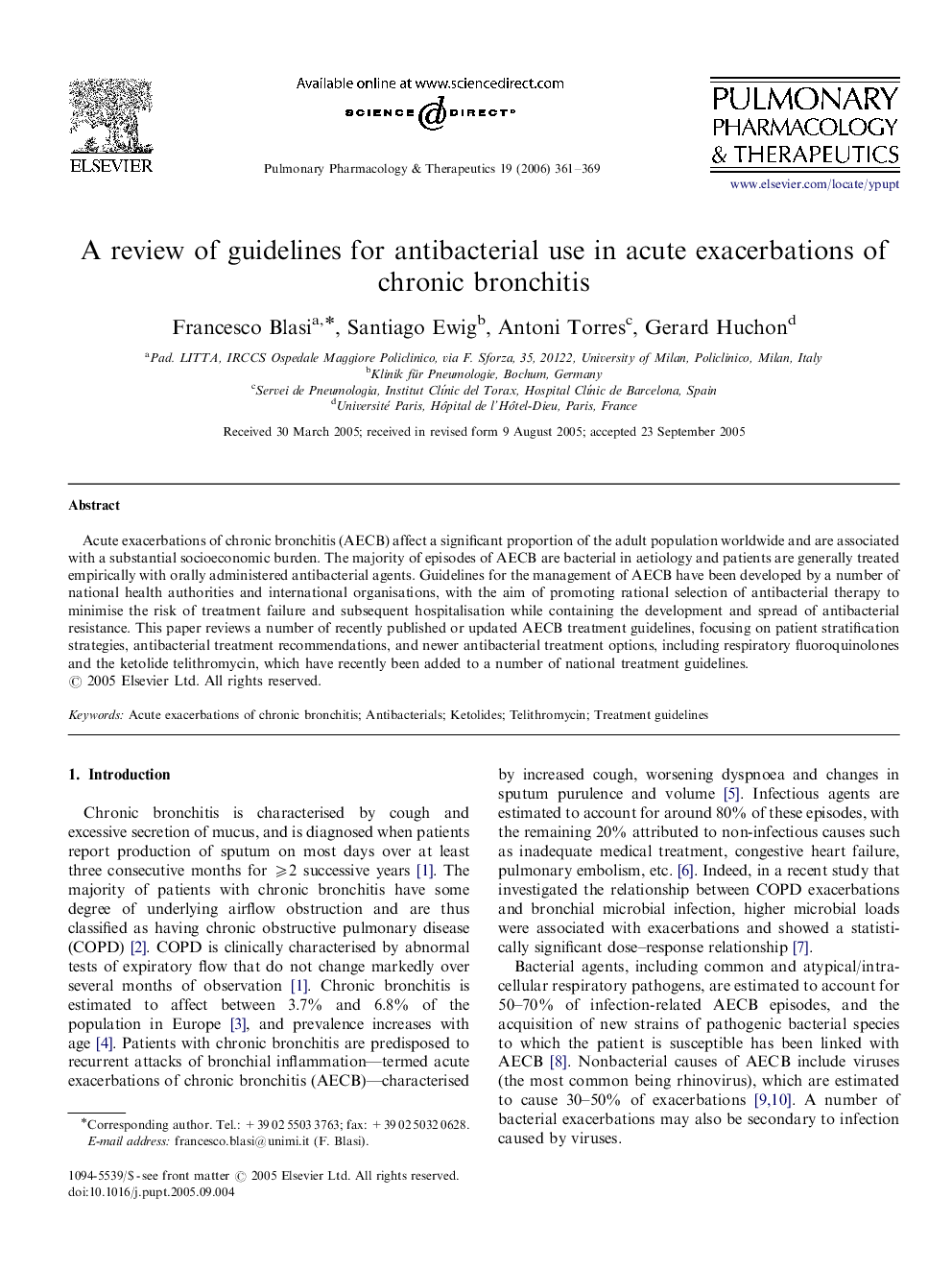| Article ID | Journal | Published Year | Pages | File Type |
|---|---|---|---|---|
| 2567835 | Pulmonary Pharmacology & Therapeutics | 2006 | 9 Pages |
Acute exacerbations of chronic bronchitis (AECB) affect a significant proportion of the adult population worldwide and are associated with a substantial socioeconomic burden. The majority of episodes of AECB are bacterial in aetiology and patients are generally treated empirically with orally administered antibacterial agents. Guidelines for the management of AECB have been developed by a number of national health authorities and international organisations, with the aim of promoting rational selection of antibacterial therapy to minimise the risk of treatment failure and subsequent hospitalisation while containing the development and spread of antibacterial resistance. This paper reviews a number of recently published or updated AECB treatment guidelines, focusing on patient stratification strategies, antibacterial treatment recommendations, and newer antibacterial treatment options, including respiratory fluoroquinolones and the ketolide telithromycin, which have recently been added to a number of national treatment guidelines.
